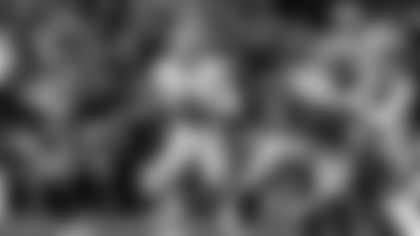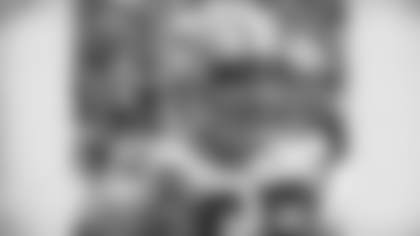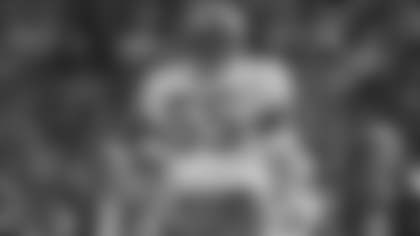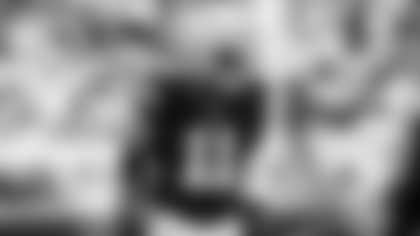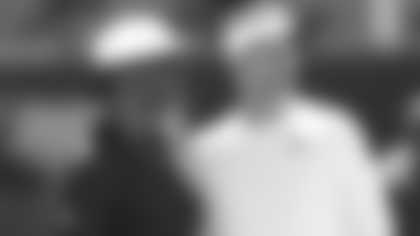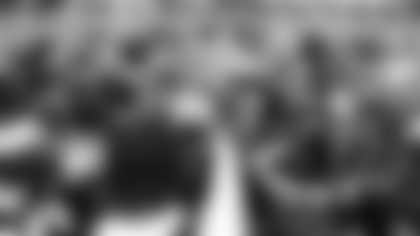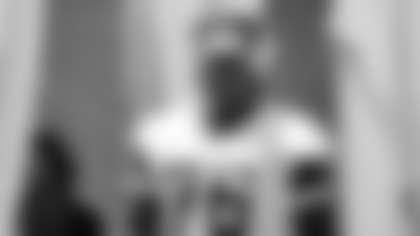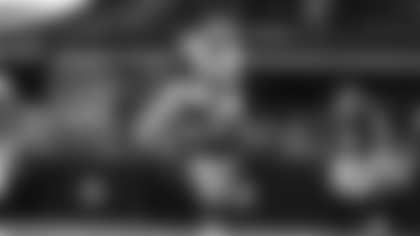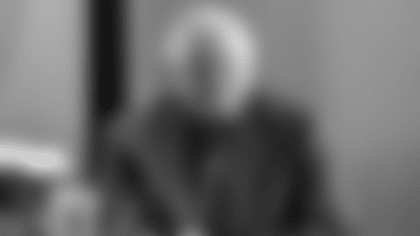In the Dallas Cowboys' long and illustrious history, the team has enjoyed a number of rivalries. Opponents that fans have grown to hate, and perhaps respect, while thoroughly enjoying the passion and intensity of the games played.
First and foremost, there is Dallas' own division, the NFC East. The New York Giants, Philadelphia Eagles and Washington Redskins have provided some of the greatest games in not only Cowboys annals, but in all of sports.
And then there are those opponents who became rivals simply because Dallas routinely faced them in the playoffs. The San Francisco 49ers in particular played the role of the enemy when the two teams met in three straight NFC Championship Games from 1992 to 1994, and who could forget "The Catch" in the 1981 NFC title matchup.
Likewise, the Green Bay Packers could also fall into this category of being a postseason challenge. Dallas has met them in the playoffs eight times with the series first revving up with back-to-back NFL Championship Game matchups in 1966 and 1967. They more famously did battle in that same decade of the 1990s, the Cowboys taking on Brett Favre and the Packers in three straight playoffs from 1993 to 1996.
Then, of course, there are the Steelers. Although an AFC opponent, Dallas has met Pittsburgh in the Super Bowl three times, losing the first two, Super Bowls X and XIII, before capturing their fifth Lombardi Trophy in Super Bowl XXX.
But while those rivalries may take precedent in the Cowboys' record books, there is one other opponent that is often overlooked – the Los Angeles Rams. Over a 13-year stretch from 1973 to 1985, Dallas ran into this West Coast team a total of eight times in the playoffs, including a six-year stretch from 1975 to 1980 that saw them meet five times in the tournament.
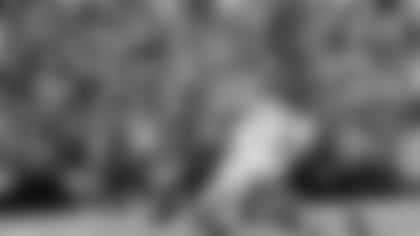
"Thinking about those games we played, those guys were the team we had to beat to make it to the next round," said Cowboys Ring of Honor safety Cliff Harris. "It was a fun series, good guys. It brings back a lot of real interesting memories."
Interesting memories indeed, beginning with a 1973 NFC Divisional Playoff game, which was held on Dec. 23 at Texas Stadium. Dallas came into this first-round matchup as winners of the NFC East, having taken six of its last seven games for a 10-4 record. But they were facing a Rams squad that had posted a 12-2 mark to capture the NFC West crown. Even worse, Los Angeles had beaten the Cowboys, 37-31, back on Oct. 14.
In that regular-season affair, Rams star receiver Harold Jackson had erupted for 238 receiving yards and four touchdown catches, all of which came in the first half.
"I really had some great times against the Cowboys," said Jackson. "We felt like if we beat the Cowboys we were in pretty good shape."
"They had the guy who I always put in the top categories of the most threatening receivers that I played against, Harold Jackson," said Harris. "In that game, we were all going, 'How in the world are they doing that?'"
Fortunately, by the time Dallas met the Rams in the playoffs, the team had a better plan for dealing with Jackson and Los Angeles' aerial attack. A speedster, Jackson had been able to get behind the Cowboys secondary in the first meeting. This time around, that wasn't going to happen.
Harris and company let it be known, and not so politely, that Jackson wouldn't be burning them on this day. And he didn't, as the Cowboys limited him to just one catch for 40 yards.
The Dallas defense was dominant as it forced two turnovers in the first quarter that turned into a quick 14-0 lead. In all, the unit also recovered two fumbles, had two interceptions and sacked quarterback John Hadl five times.
On the other hand, Cowboys signal-caller Roger Staubach didn't exactly have it easy either, as he was sacked seven times himself, which is tied for the most by a playoff opponent in team history. He also threw for only 180 passing yards, of which 83 came on a touchdown bomb to Drew Pearson in the fourth quarter to seal the victory.
The Cowboys wrapped up the day with a 27-16 victory to advance to the NFC Championship Game, where their season came to an end with a loss at home to the Vikings.
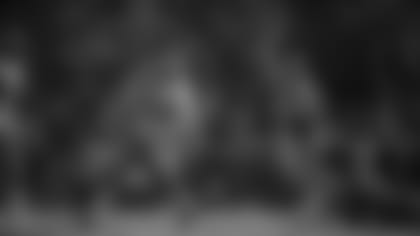
After failing to even make the playoffs in 1974, Dallas would run into the Rams in each of the next two postseasons – and with mixed results. The first of these would come in the 1975 NFC Championship Game when the Cowboys, coming off their Hail Mary victory in Minnesota, had to travel to Los Angeles to face the heavily favored Rams.
A wild-card team that year, Dallas had ridden the wave of the "Dirty Dozen" draft class to a 10-4 record while Los Angeles had dominated the NFC West. And again these two had met earlier in the regular season when Dallas won at home in the schedule opener with an 18-7 victory.
But after that initial loss, the Rams only fell once more during the campaign on their way to a 12-2 mark. Now they were at home in venerable Los Angeles Coliseum and facing a Cowboys team that Rams linebacker Isiah Robertson said ran a "rinky, dink offense," referring to Tom Landry's shotgun formation.
"They had a tough defense but our coaches always prepared us," said running back Preston Pearson. "I always loved playing in the Coliseum. It was the biggest stage. Coach Landry always told us that going to New York, you were going to be seen by everybody. The same seemed true in Los Angeles."
And on this day it would be Pearson who would shine more than anyone else. He rushed for only 20 yards on seven carries, but using his ability to beat the Los Angeles linebackers, he torched the Rams for 123 receiving yards off of seven catches, three of which went for touchdowns, still a Cowboys playoff record for scoring grabs in a game.
Behind his effort, Dallas strolled to a shocking 37-7 blowout win that launched them into Super Bowl X.
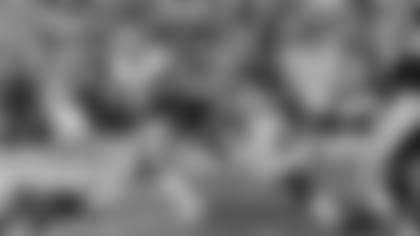
"It was maybe my best game ever," said Pearson. "They weren't as bad as the score indicated, but in the NFL, some days it's just a team's day, and that was our day."
The reverse could be said of the next year, though, when the day was definitely not the Cowboys'. Both teams won their respective divisions, although the Cowboys finished 11-3 in the tougher NFC East while the Rams rolled through the NFC West with a 10-3-1 record. This time, Dallas was the heavy favorite as they played host in the NFC Divisional Round.
Doing its part, the Cowboys defense was stout, limiting the Rams to just 250 yards of total offense while picking off three Pat Haden passes. And even more impressive, the Dallas special teams units were spectacular. They were led by Charlie Waters, who blocked not one, but two punts.
The second of those came with only minutes remaining in the fourth quarter, and the Cowboys recovered the ball at the Rams' 17-yard line, trailing 14-10. But as had been the case all game, the Dallas offense could do nothing to take advantage.
In a game that Roger Staubach called the most frustrating day of his pro career, he completed only 15 of 37 passes for 150 yards, with no touchdowns and three interceptions. On that final desperate series, his first three pass attempts fell incomplete while his fourth, which was to tight end Billy Joe DuPree, came up just short of a first down.
That left the Rams to take three knees to run down the clock before their beleaguered punter stepped out of the back of the end zone for the safety as time expired, the Cowboys losing 14-12.
"Usually when you block one punt in the game, you win the game," said Waters, "but we blocked two punts and didn't win. Roger still apologizes to me today on that."
"That was devastating," Ed "Too Tall" Jones said of the loss. "That probably hurt me more, during my 15 years, than any other year because I felt, not to take anything away from the Rams, but I felt that we had the best team. I didn't feel that the best team represented the NFC that year."
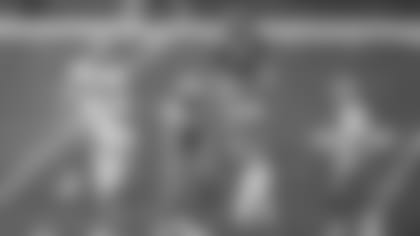
Nevertheless, it was Los Angeles who advanced to the NFC Championship Game that season, where the Rams would fall to the Vikings. The loss did, however, prove beneficial in one way for Dallas. In 1977, the Cowboys came back and used the bitter defeat as motivation for a year that would eventually end with a victory in Super Bowl XII.
Although their road to the title did not take them through the Rams in 1977, the next chapter in this series rivalry would be added over the following three seasons, as Dallas and Los Angeles crossed paths again in the 1978, 1979 and 1980 playoffs. And the first of those may have been the apex for the Cowboys in their entire postseason rivalry with the Rams.
Similar to prior years, the two teams had faced each other earlier in the regular season, and Los Angeles had won at home by a convincing 27-14 score. So angry was Staubach with the game and perhaps the trash-talking, that he reportedly told one Rams player, "We'll see you frontrunners in the playoffs."
They most certainly did, but not before a few more words were had. This time it was Thomas "Hollywood" Henderson who got into the mix. Known to be a trash-talker himself, the Cowboys Pro Bowl linebacker famously said prior to their showdown in the 1978 NFC Championship Game, "The Rams have no class. They don't belong in the Super Bowl."
Both teams again won their respective divisions with identical 12-4 records. Dallas finished strong and was riding a seven-game winning streak, having captured their final six outings of the regular season plus a 27-20 victory over Atlanta in the divisional round. Conversely, the Rams got out of the gate quick, taking their first seven games before going 5-4 down the stretch. Still, they walloped the Vikings in their opening playoff tilt, 34-10, and because they would be the home team, Los Angeles again was considered the favorite.
By this point, the intensity of the rivalry had reached another level. So much so that to this day, Henderson is certain that the Rams tried to take him out.
Back in their 1975 playoff meeting, Henderson was asked by Cowboys special teams coach Mike Ditka to make his presence known to Rams kicker Tom Dempsey on the opening kickoff. Once the kick was on its way, "by the time Dempsey lifted his head, I had his butt in midair," said Henderson.
"I sort of think that might have been the moment when it all started," he continued. "Every year we had this sort of running back and forth."
Now here they were again in the 1978 NFC Championship. When the Rams lined up for a field goal early in the game, Henderson was a part of the special teams unit for Dallas.
"A linebacker named [Kevin] McClain was in the up-back position on one side, and I'm rushing from the other side to try to block this field goal," said Henderson. "He comes out of his position and comes across in front of the kicker trying to target me. They missed the field goal, and he missed me."
Talk about poking the bear. Henderson ran to the Rams sideline and unleashed a verbal tirade on Los Angeles head coach Ray Malavasi. And then to add insult to injury, after the Cowboys had built up a 21-0 lead in the fourth quarter, guess who stepped in front of a Vince Ferragamo pass and returned the interception 68 yards for the punctuating touchdown.
"I was able to score in the NFC Championship Game and finger roll the ball over the goal post," said Henderson, "The next time I went on the field, when I got close to their sideline, that's when I screamed, 'I told you you didn't have any class! See? I killed you. We were 21 up, now it's 28. Guess what, I jumped it!'"
Even though the Dallas offense totaled only 235 yards, the Rams were limited to just 277, and they turned the ball over an incredible seven times, which included two interceptions by Waters. The Cowboys also recorded three sacks.
With the victory, Dallas again advanced to the Super Bowl, but the Steelers would prove to be their downfall once more. A team that many thought was even better than the 1977 champions lost to Pittsburgh, 35-31.

What may be most remembered about the 1979 tilt, which came in the divisional round and was played at Texas Stadium, is that it was the last game ever for both Staubach and Harris. In yet another contest in the series where the favorite failed to win, the Cowboys had the lead, 19-14, late in the fourth quarter when Ferragamo found wide receiver Billy Waddy for a 50-yard game-winning touchdown.
"It was a fluke pass," said Harris, "but they caught it and beat us. It was an upset for sure."
The 1980 season brought in a new era with Danny White lining up behind center, but the results were the same – the Cowboys continued their regular-season success, posting a 12-4 mark but finishing second in the NFC East. And one of those losses came at the hands of the Rams in the second-to-last game of the regular season, a 38-14 thumping. And now they would be pitted against that same Los Angeles squad in the wild-card round, the Rams also ranking second in the NFC West with an 11-5 record.
On this day, though, the Cowboys would come out on top. Dallas fell behind 13-6 early in the game, but then reeled off 28 unanswered points to roll to a 34-13 whitewashing. Tony Dorsett handled the heavy lifting with 160 rushing yards and White chipped in three touchdown passes despite totaling only 190 passing yards.
That win was followed by a 30-27 victory over Atlanta in the divisional playoffs before the Cowboys fell to Philadelphia in the NFC Championship.
Only twice more would Dallas face the Rams in the playoffs and neither one is exactly memorable for Cowboys fans. In 1983, Los Angeles came into Texas Stadium once again as the underdog. Dallas had racked up a 12-4 record while scoring 479 points, which is still the most in team history. But after starting the season 7-0 and winning 12 of their first 14 games, the Cowboys stumbled to the finish, losing their final two before the Rams came to town and handed the home team a 24-17 loss in a wild-card matchup.
Two years later, the 10-6 Cowboys traveled to the Rams' home in Anaheim to take on the 11-5 team in the divisional round, and it wasn't even close. White threw three interceptions and was sacked five times as the home side ran away with a 20-0 victory, the worst loss in the Cowboys' long playoff history.
Following that, the team's rivalry with the Rams slowly but surely faded from view. This will be the 13th meeting between the two clubs in the last 32 years since that 1985 playoff matchup, but each has come during the regular season with the Cowboys owning a 7-5 mark in those games.
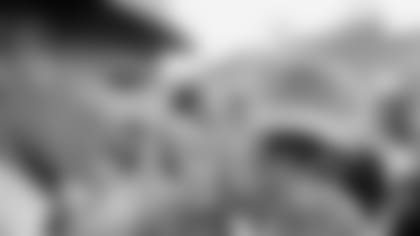
Dallas would rise to greatness in the 1990s, winning three Super Bowls in a span of four seasons, but that came during a nine-year playoff drought for the Rams. Similarly, when the then St. Louis Rams entered the game's elite around the turn of the century, winning the Super Bowl in 1999 and going to the postseason in five of six years through 2004, the Cowboys only made the playoffs twice and were a quick one and done on each occasion.
Today, the Los Angeles version of the Rams hopes to break a 12-year playoff drought, while Dallas is hoping to build on the success of reaching the divisional round in two of the last three years.
Still, those who were a part of the intense playoff matchups with the Rams, particularly in the 1970s, recall with fondness what could then be considered a rival.
"I really enjoyed playing them," said Harris. "The L.A. Coliseum was just a very intimidating, but at the same time invigorating and stimulating, place to play. It was a fun place to play."
"I think both teams looked forward to playing each other during the playoffs," said Jackson. "We always looked forward to going to Dallas. I had some really great times against the Cowboys. I don't think it was bad blood. I think it was respectful."
Or as respectful as two of the NFL's elite, hungry for the Super Bowl teams can be. While the aforementioned rivalries Dallas continues to enjoy today will forever take precedent – those such as the Giants, Redskins, Eagles, Packers and even the 49ers – the history that the Cowboys and Rams shared some four decades ago is well worth remembering.




